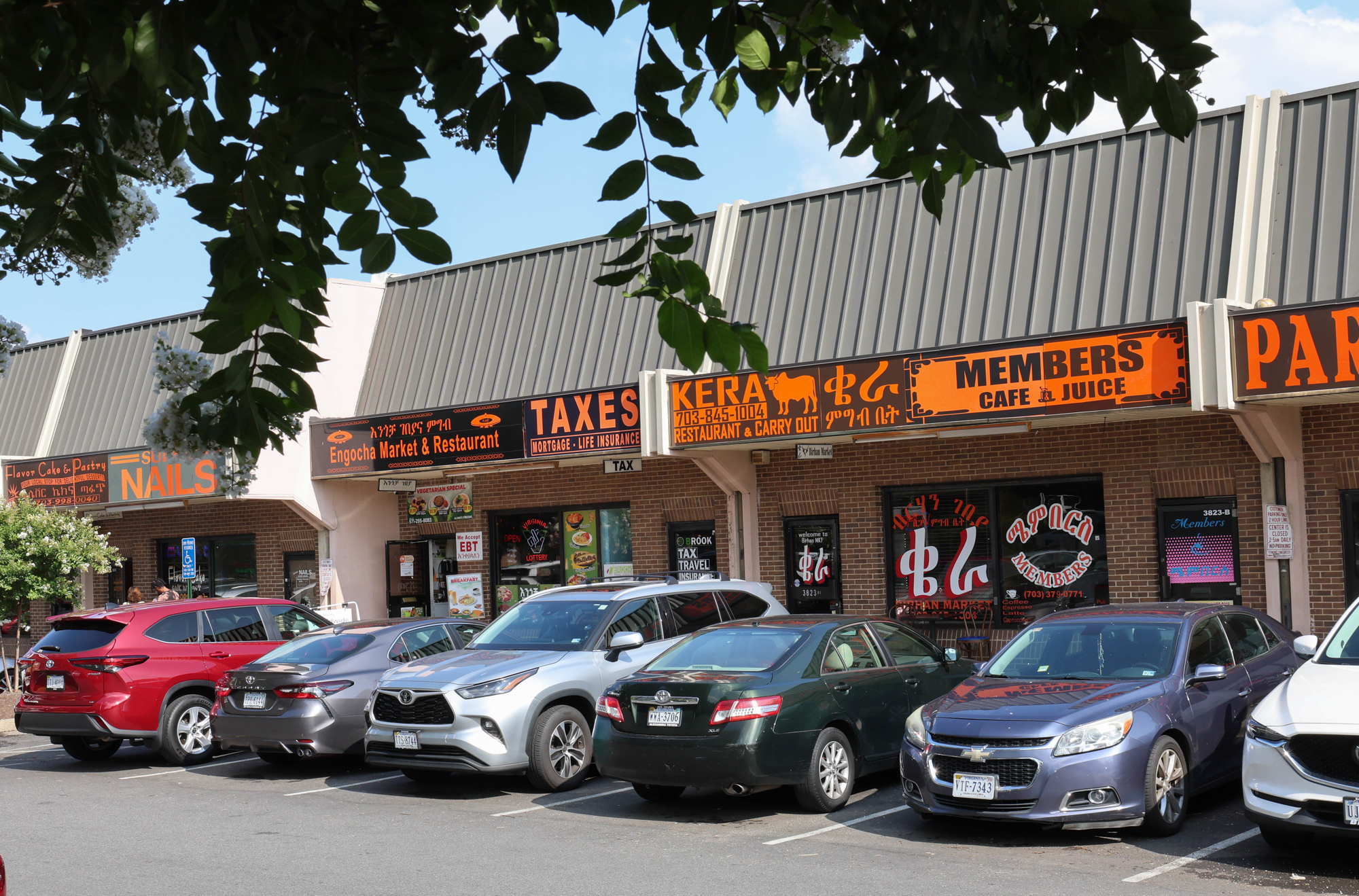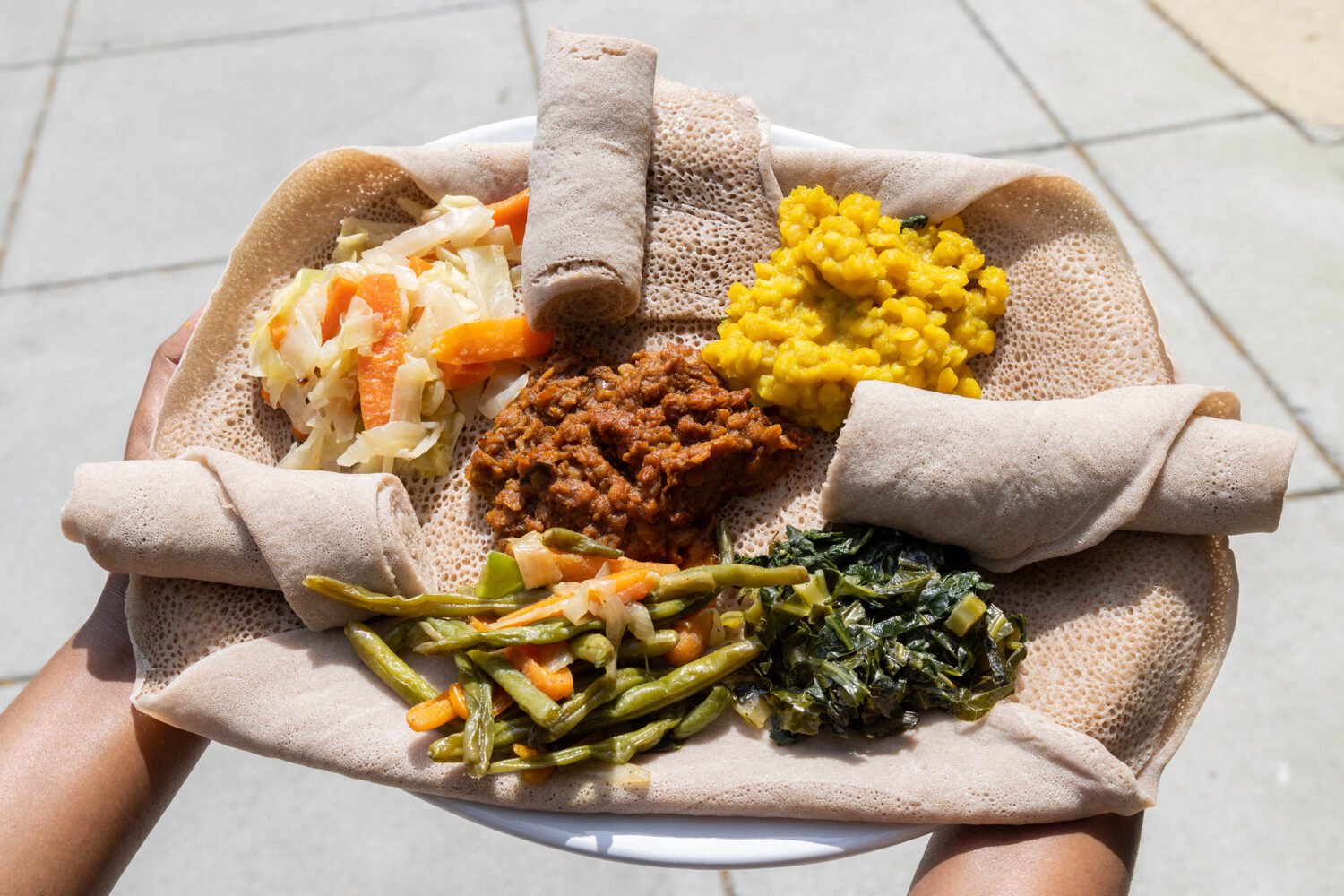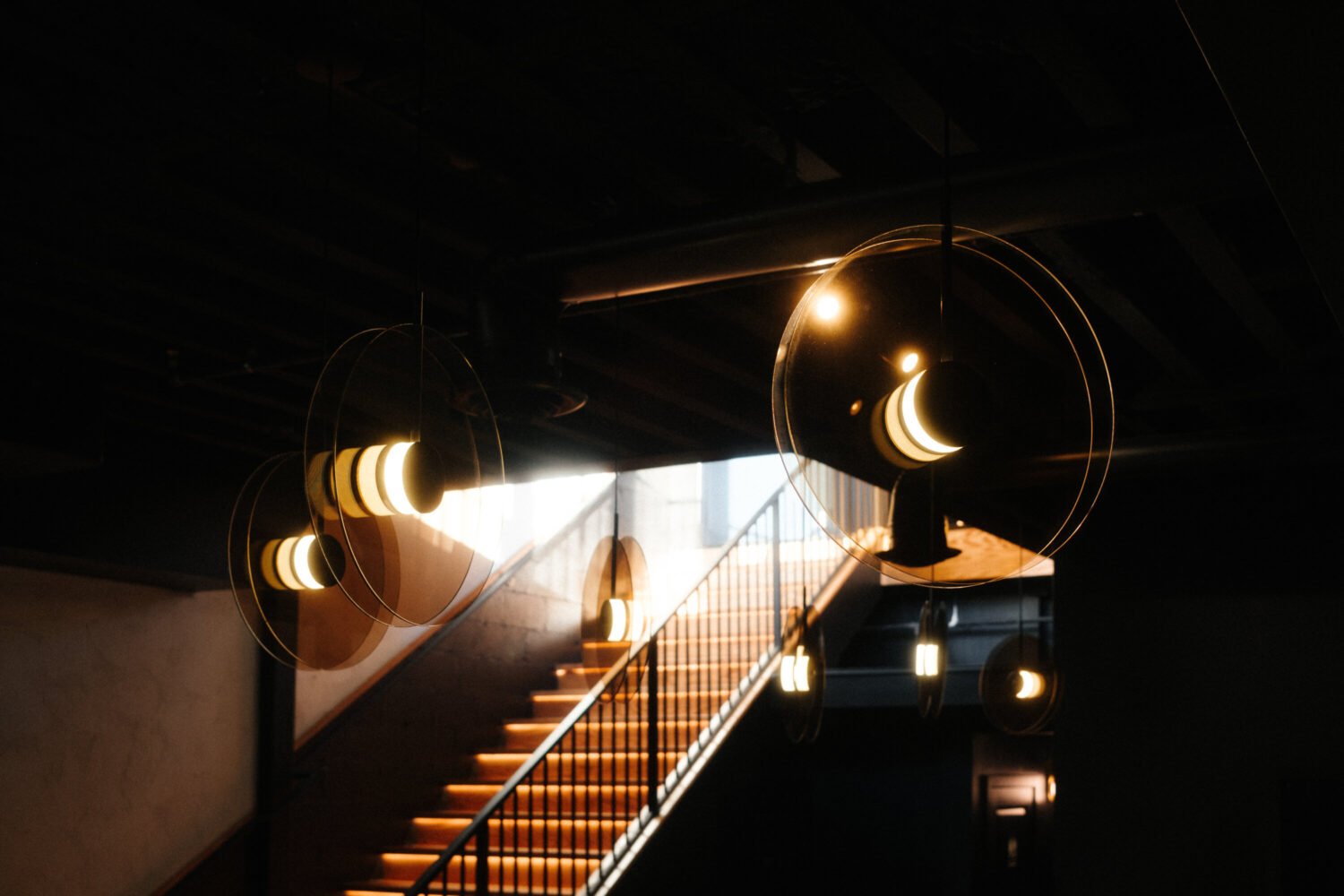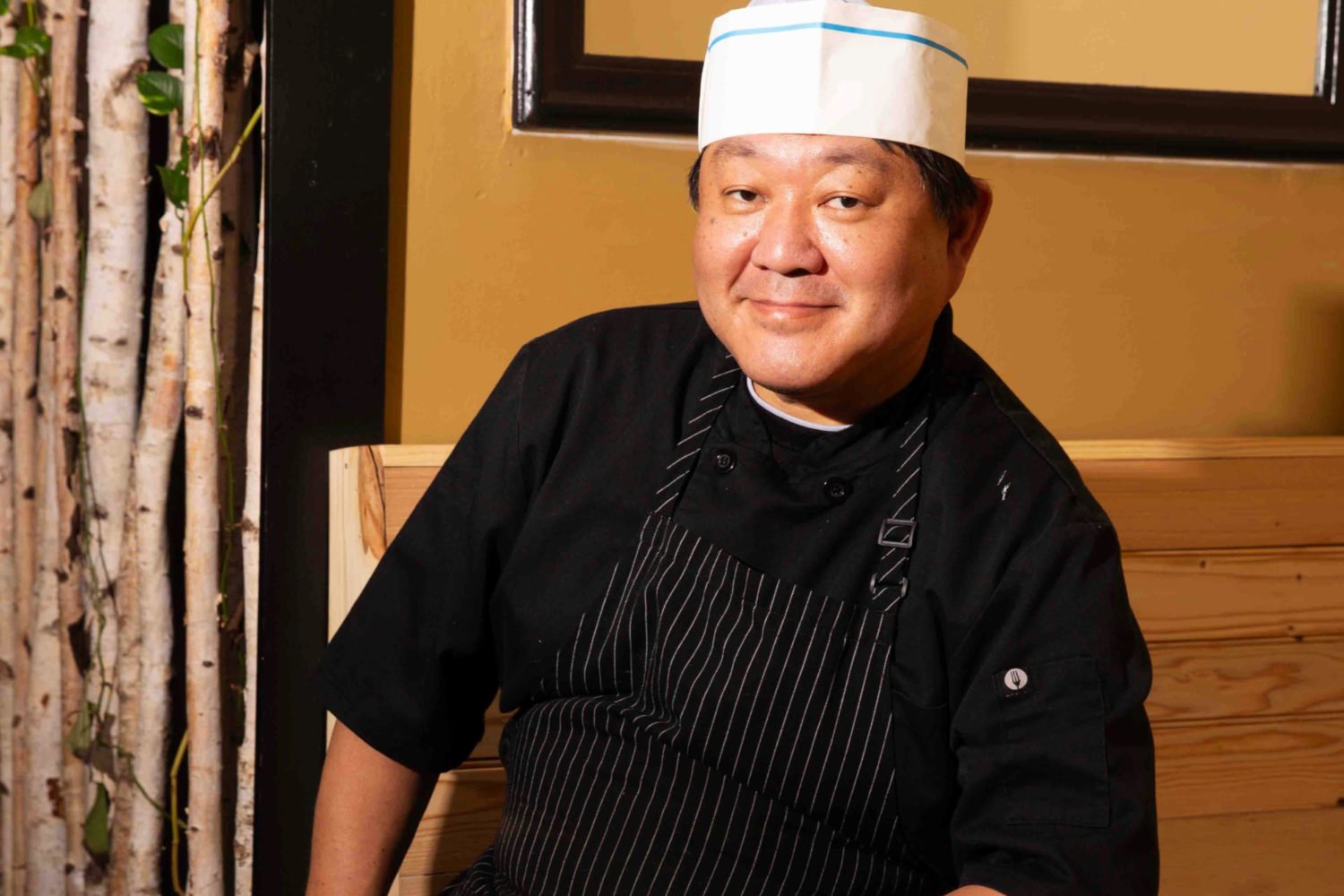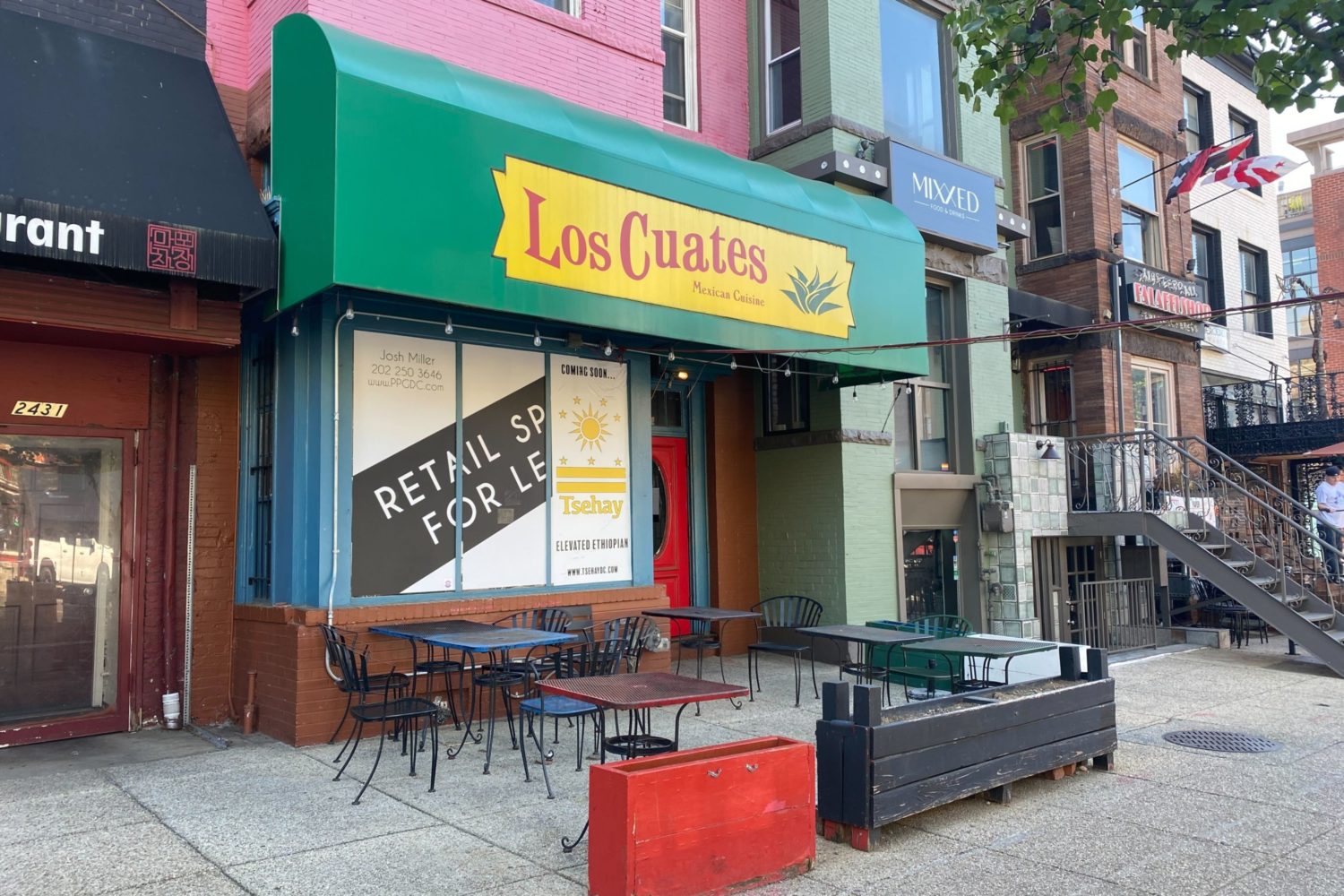DC has long been the capital of Ethiopian food in America, but the heart of the local Ethiopian food world has migrated from Adams Morgan and Shaw to suburbs such as Silver Spring and Alexandria. And nowhere feels more like the community’s downtown than Build America Plaza, a pair of squat, bunker-like strip malls on the edge of Bailey’s Crossroads in Falls Church. Besides a 7-Eleven, a pizzeria, a modest Somali takeout counter, and a few Yemeni and Eritrean businesses, the dozens of restaurants, markets, butcher shops, and bakeries there are all Ethiopian. Behind their cubby-like storefronts, servers slap down pillowy disks of injera beside sizzling platters of beef tibs, and customers nod to the chugging rhythms of Ethiopian pop. A few highlights:
Engocha Market & Restaurant
location_on
3823 S. George Mason Dr.
language
Website
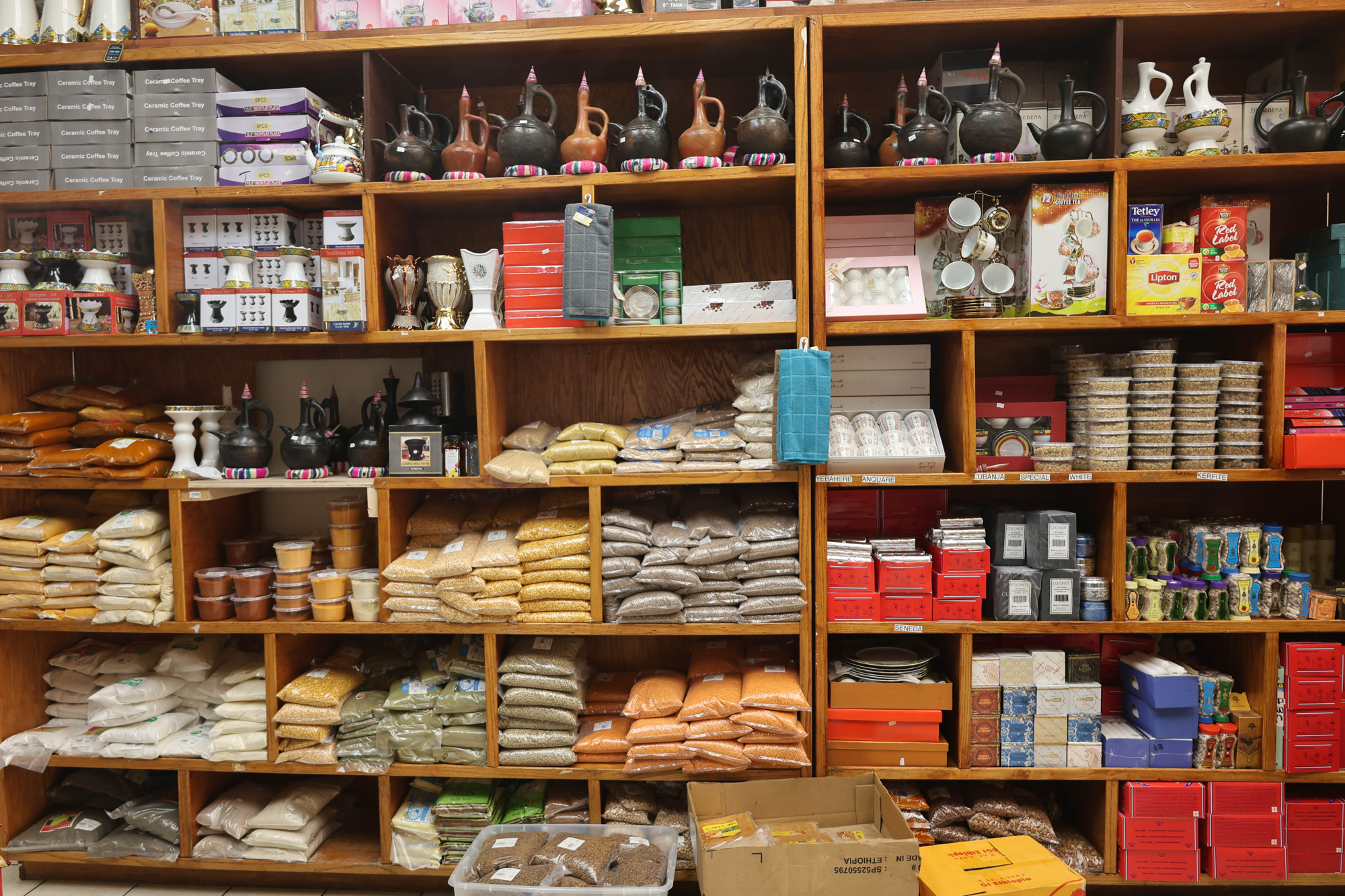
Butchers play a vital role in Ethiopia, where fresh beef, served raw in several traditional dishes, is essential. This brightly lit meat counter and market has become one of the mall’s top purveyors of kitfo, the classic tartare of cardamom-seasoned, butter-slicked ground beef scooped up with injera.
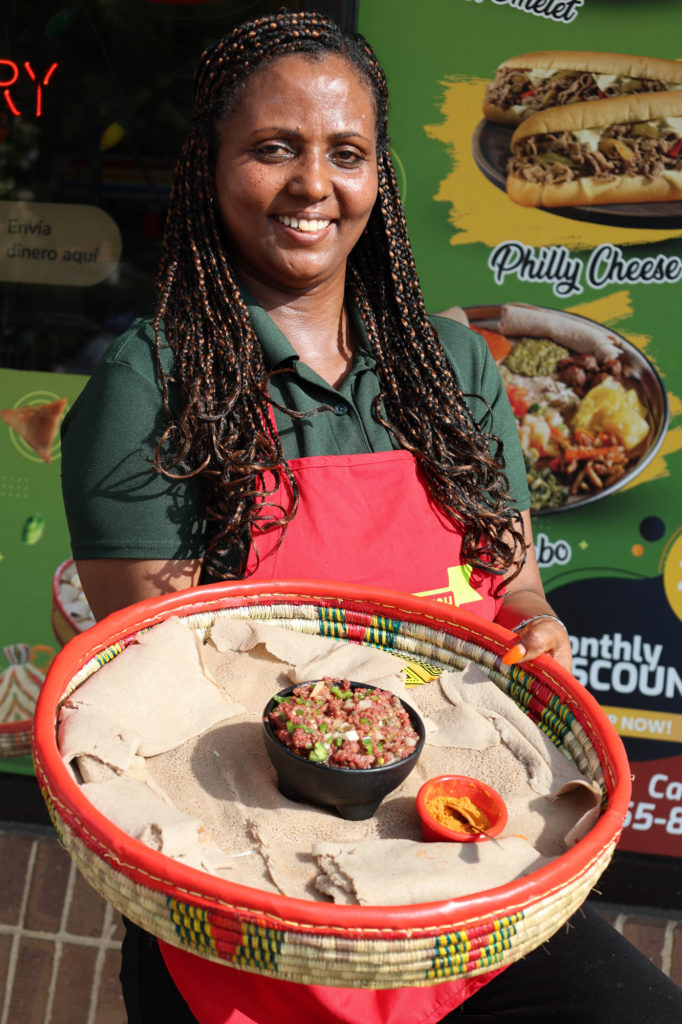
Co-owner Rahel Kassa was studying mechanical engineering in Addis Ababa in 1999 when she won the Diversity Visa lottery and got a green card to come to the US. She started as a different kind of ground-beef specialist, managing Johnny Rockets locations in Pentagon City and Union Station. “I always had a dream of having my own business,” Kassa says, and during the pandemic, she and brother Dawit secured this space. One regular drives 40 miles from Fredericksburg to do her shopping at the plaza, stopping here every time for a few pounds of kitfo to go.
One of Kassa’s favorite dishes is dullet, a variation of kitfo with the addition of tripe and liver, plus a daub of electric mitmita chili powder on the side. But observant Ethiopian Christians don’t eat meat nearly half the days of the year—the Ethiopian Orthodox Tewahedo Church has a strict fasting regimen that bans animal products on Wednesdays and Fridays, during Lent, and before Christmas. That’s one reason many Ethiopian restaurants are vegan-friendly, and Kassa is proud of Engocha’s plant-based dullet, made with a meat substitute and the same tangy mitmita.
Showa Baltena
location_on
3813-B S. George Mason Dr.
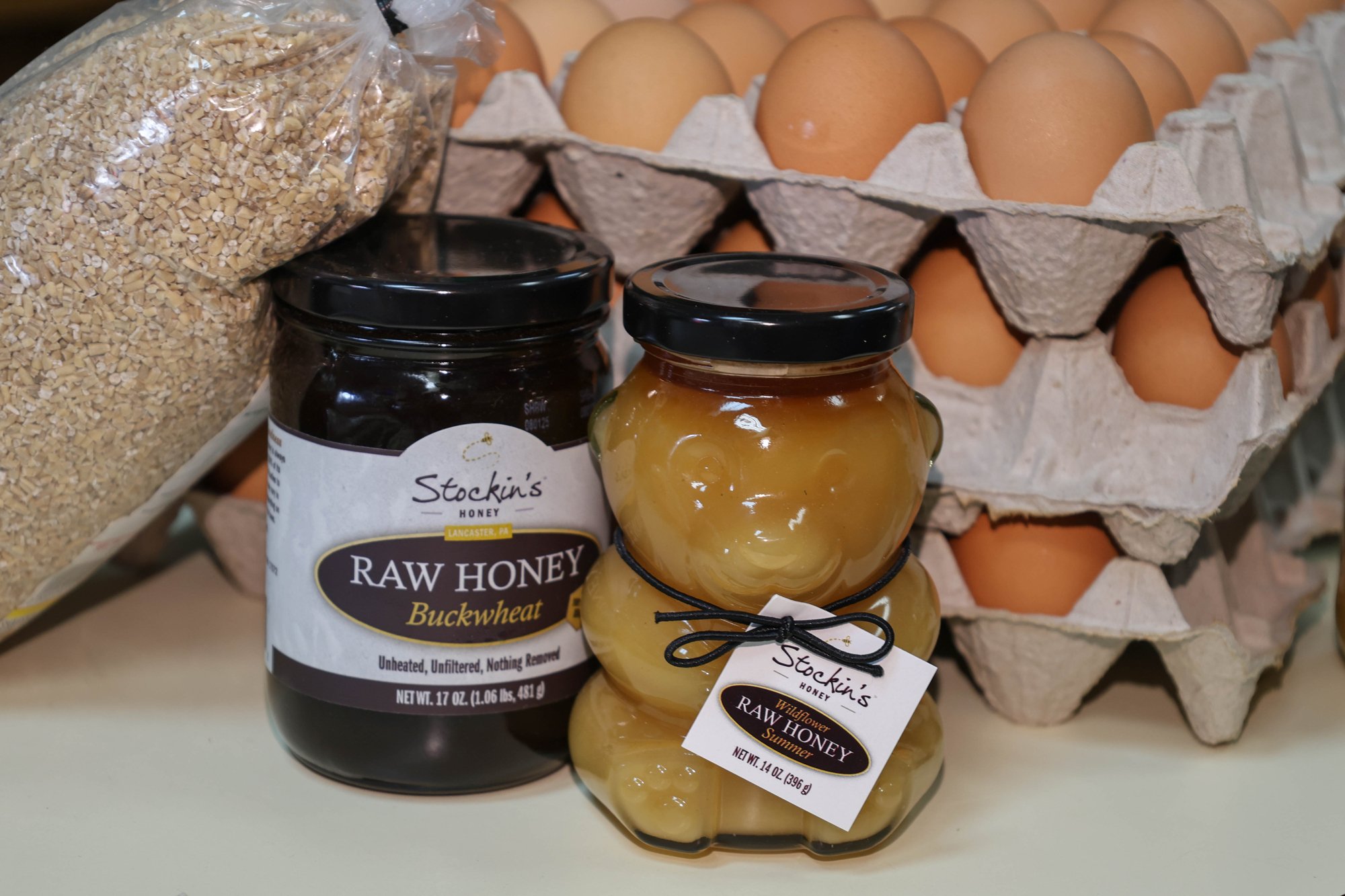
The images of an Amish horse-and-buggy and postcards of beaming, long-bearded Pennsylvania farmers might at first seem incongruous in this Amharic-speaking shop. But the pictures are there for a reason. Showa Baltena sells Amish food products, especially honey, butter, and beef, which have developed a deservedly stellar reputation here. The shop’s employees make regular drives to Amish Country to pick up goods from local apiaries, orchards, and dairies. “They have the best quality, and it’s 100 percent organic,” says owner Yohannes Kassa. “Everybody loves it.”
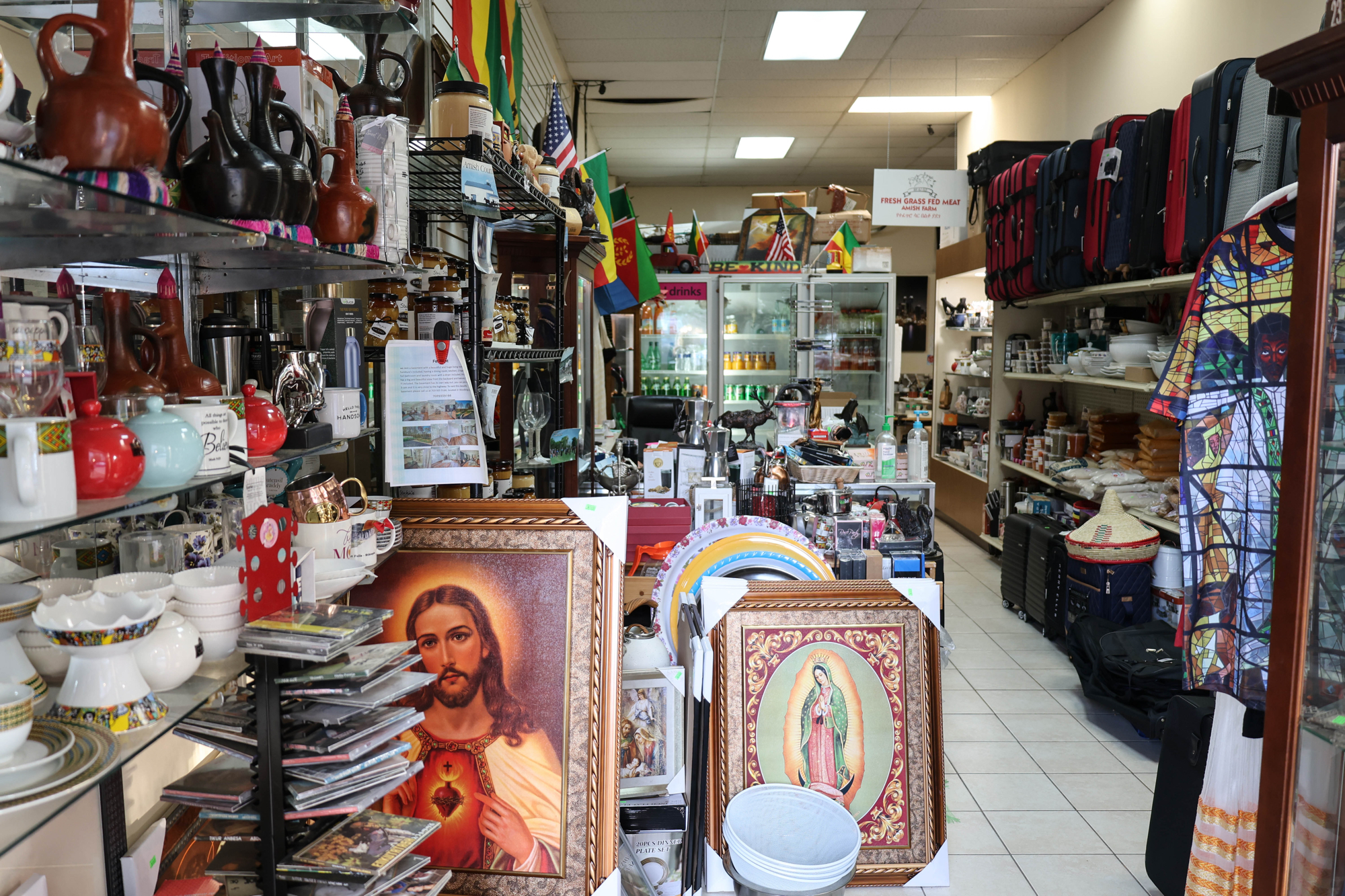
Balagger
location_on
3813-E S. George Mason Dr.
language
Website
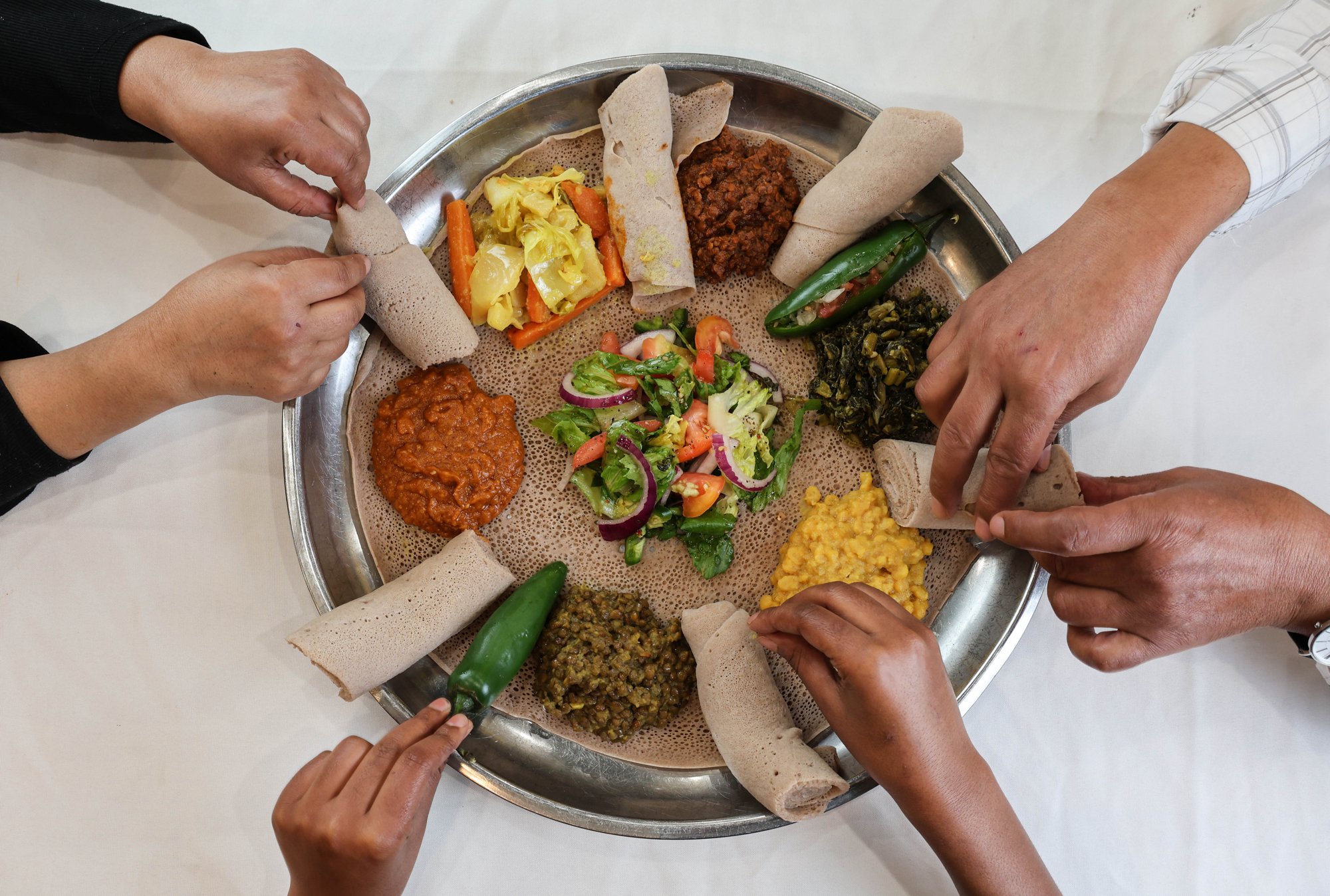
While the veggie combo at some Ethiopian restaurants consists of tiny, lonely dollops of lentils and stews, Balagger’s injera is lovingly sloshed with shiro (chickpea-flour stew), red lentils, collards, yellow lentils, cabbage, and salad. Balagger specializes in kurt, also known as tere siga—hunks of raw meat sliced from a beef leg, accompanied by nose-clearing fresh mustard and mitmita. A pane of glass gives diners in the tavern-like restaurant a peek at the beef hanging from a meat hook inside the walk-in fridge.
Flavor Cake & Pastry
location_on
3821 S. George Mason Dr.
language
Website
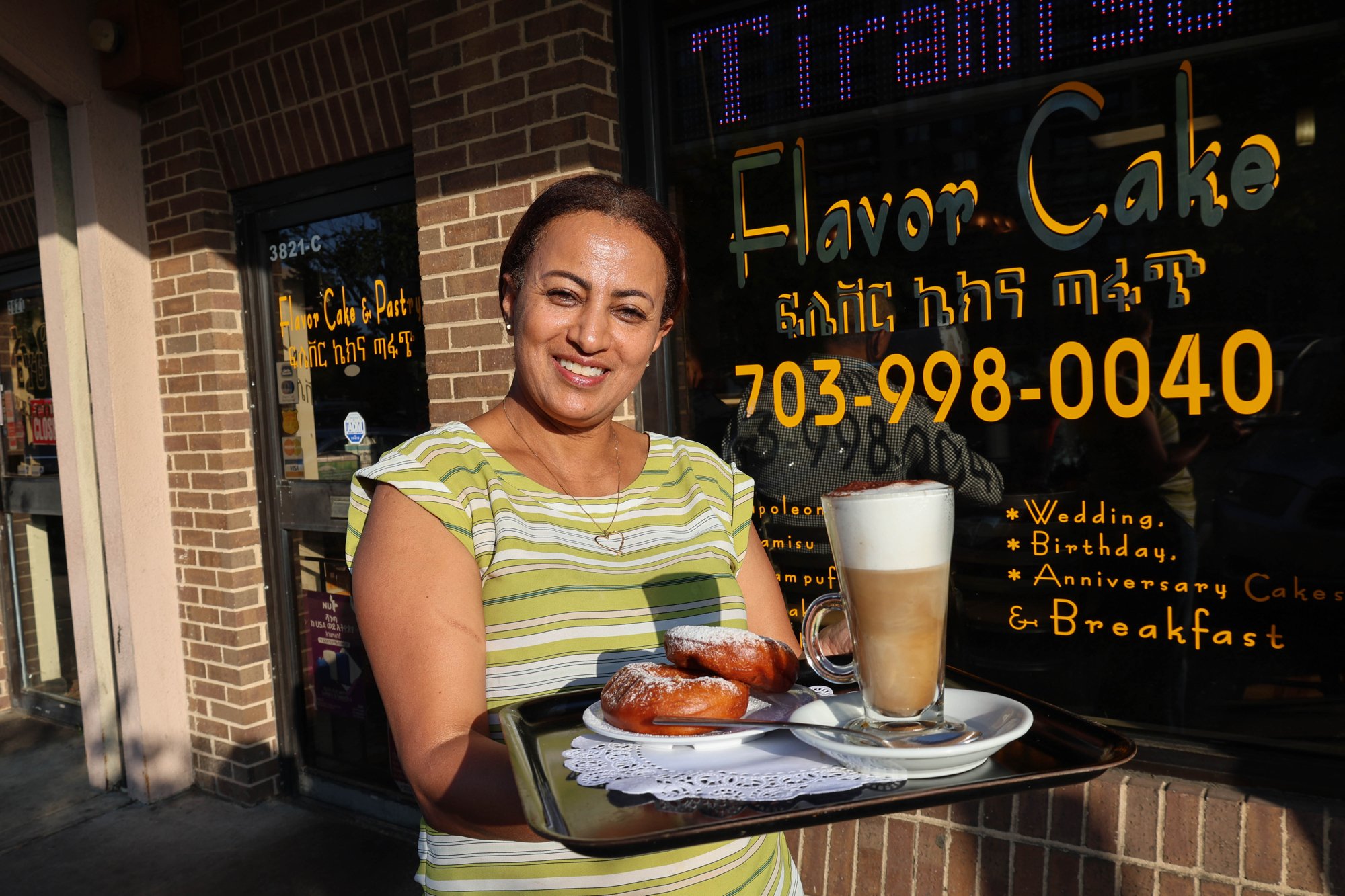
Coffee originated in Ethiopia, and the country’s interior highlands grow some of the best beans in the world. The nation and its diaspora still maintain a rich coffee culture, and Flavor Cake is a great, unpretentious place to experience it. There’s also the Italian influence—the result of two invasions of the Horn of Africa. You can get a delicious macchiato here and, to eat with it, a deep-fried Italian-style doughnut.
Marhaba Market
location_on
3819-G S. George Mason Dr.
This 30-year-old market specializes in imported Ethiopian ingredients and snacks, and it carries a wide range of Ethiopian packaged foods made in Falls Church, Springfield, Wheaton, and Northwest DC. Rounds of difo dabo—barley bread studded with nigella seeds and wrapped in banana leaves—are so fresh that they steam up their plastic bags. There are barrels of lentils and Tupperware containers holding dozens of spices (including some you’ve likely never used if you don’t cook Ethiopian food). Go for injera made in Petworth each morning or injera flown in from Addis, then driven straight from Dulles to the market every day.
This article appears in the September 2023 issue of Washingtonian.

